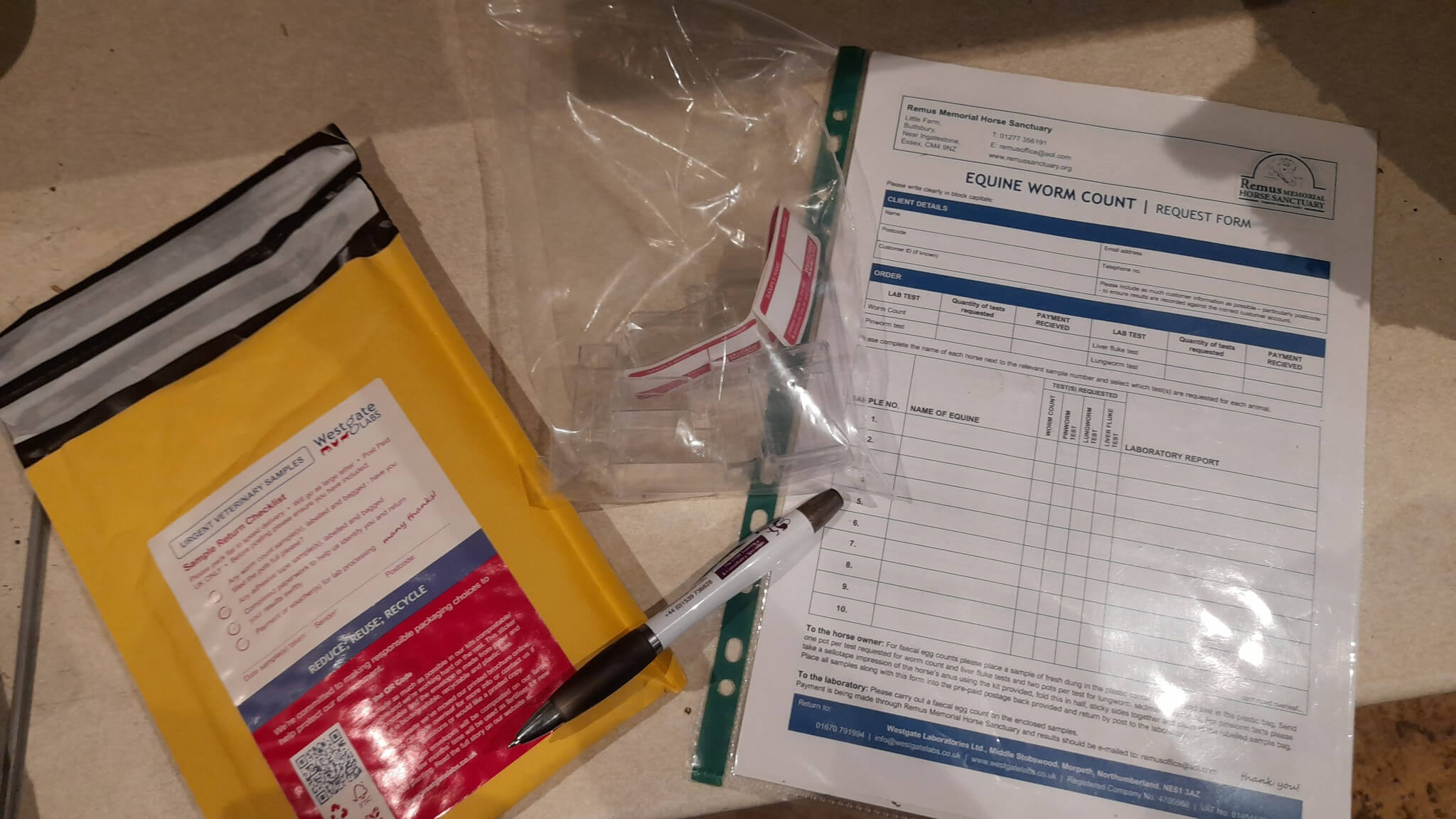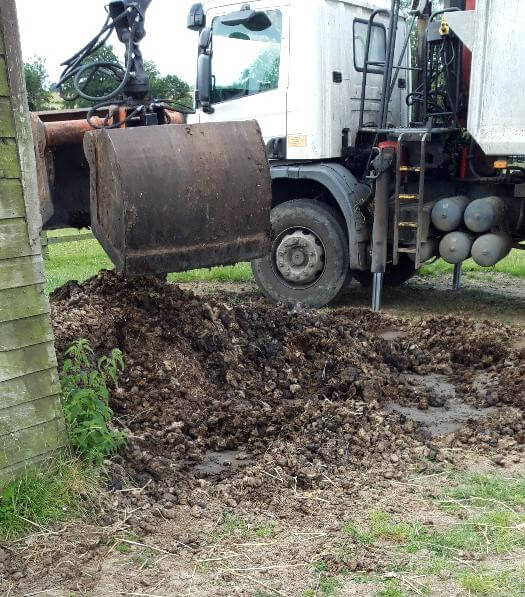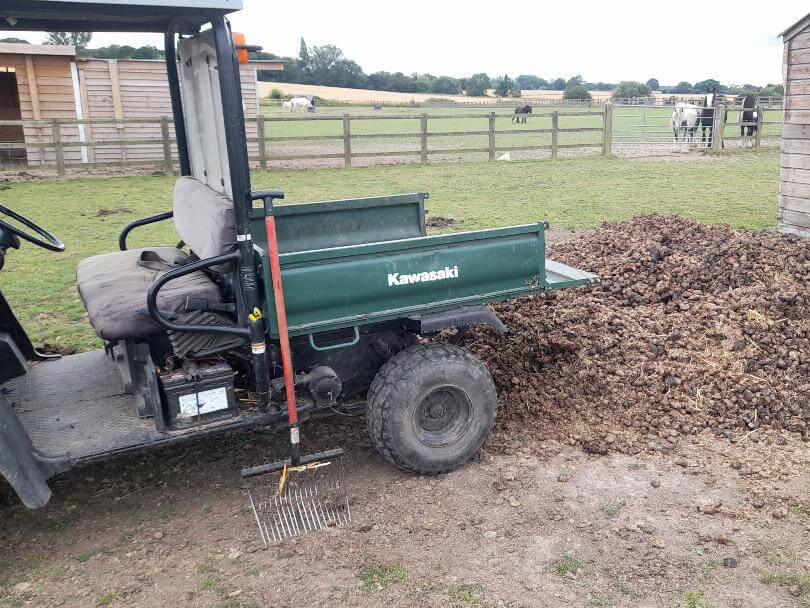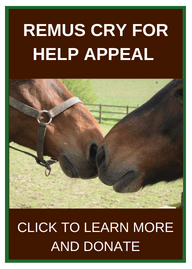


Getting to the Bottom of it!
All the equines at Remus are under a strict worming programme which allows us to keep on top of any parasitic worm problems and assess the right treatment course. A worm burden for a horse can vary in its severity due to the horse’s age and any pre-existing health problems. In most cases a low worm burden number will cause very little problems to an individual but when this becomes high it can cause a horse to be in poor health, with loss of body condition and even colic.
Prevention is always the best course of action, and we undertake a few tasks and follow a few set rules to minimise the risk of problems occurring:
- Firstly, where possible, we try to keep on top of de-dunging our fields, this then concentrates any faecal eggs either into one pile in a field where the horse is unlikely to graze from, or it is brought up to the muckheap to then be taken off site.
- Secondly, we try to keep individuals in the same set groups and rarely move them around to different fields that have housed different animals over time. This then creates little ecosystems and populations of worm problems in set fields with set individuals in that field rather than a mass site infection.
- Lastly, we weigh all of our stabled horses weekly and the field horses on a monthly basis, which then flags up any that have suddenly lost a lot of weight in a short space of time as this can be indicative of a worm burden problem, as can some colics.
Every 12 weeks (depending on the type of wormer being used), we carry out dung samples for all of our equines to see what or if any faecal eggs are found and to what concentration. We don’t worm a horse unless a reading of more than 200 eggs per gram is given – you do not want to overuse wormers especially with the current climate of resistance to these products being increasingly found.
However, we do worm everyone at least once a year as well as give them a wormer for tapeworm which cannot be measured by doing faecal egg counts. The measurement for tapeworm requires a different test and the horse is treated with a different class of wormers for this problem. Everyone has a dung sample collected to be sent off to the laboratory for testing and then it’s posted off to the laboratory to undertake this screening.
As you can image, this is all both administratively burdensome and time consuming, and any donation you can make to help our ongoing costs would be very much appreciated.
Sadly our final Open Day of the season is swiftly approaching. Join us on Sunday 1 October for our last Open Day of 2023.










